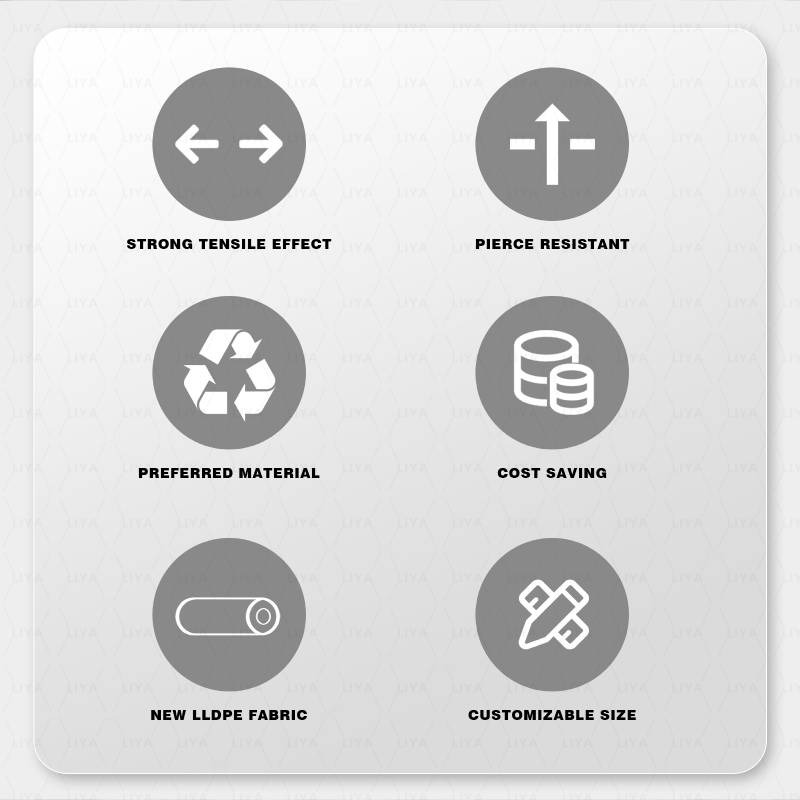Exploring the Benefits and Uses of Eco-Friendly Plastic Postage Bags for Shipping and Storage Solutions
The Rise of Plastic Postage Bags in E-Commerce
In the rapidly evolving world of e-commerce, packaging plays a crucial role in ensuring products reach customers in perfect condition. Among various packaging solutions, plastic postage bags have emerged as an efficient and popular choice for online retailers. These bags, often made from lightweight polyethylene, offer several advantages that align well with the needs of contemporary businesses and environmentally conscious consumers alike.
One of the primary benefits of plastic postage bags is their durability. Unlike traditional paper packaging, plastic bags are resistant to tearing and moisture. This quality is particularly important for items that may be vulnerable to the elements during transit. For example, clothing, electronics, and other delicate products benefit from the protective nature of plastic bags, reducing the risk of damage during shipping. This not only ensures customer satisfaction but also helps sellers avoid the costs associated with returns and replacements.
Another significant advantage of plastic postage bags is their lightweight nature
. Reducing the weight of packages can lead to lower shipping costs, which is especially important for online retailers competing in a market where price sensitivity is high. Lightweight packaging also results in lower fuel consumption during transportation, making it a more environmentally friendly option in terms of carbon footprint compared to heavier alternatives.plastic postage bags

Moreover, plastic postage bags are highly versatile. They come in various sizes and designs, allowing businesses to choose the perfect fit for their products. Many suppliers offer custom printing options, enabling brands to include their logos and marketing messages directly on the bags. This ability to brand packaging not only enhances a company's visibility but also contributes to a cohesive and professional unboxing experience for customers, fostering brand loyalty and recognition.
However, the growing use of plastic postage bags has not been without criticism. Environmental concerns regarding plastic waste have prompted many consumers and advocates to urge businesses to reconsider their packaging choices. In response, a growing number of companies are exploring alternatives, such as biodegradable or compostable materials. Some manufacturers are also producing recyclable plastic bags, encouraging customers to recycle them after use, as part of a broader corporate responsibility initiative.
As the industry moves forward, innovations in plastic technology are paving the way for more sustainable options. Companies are investing in research and development to create eco-friendly plastic alternatives that maintain the quality and protective features consumers expect. For instance, new polymers that are both compostable and durable are being developed, potentially revolutionizing the way businesses approach packaging.
In summary, plastic postage bags have become a cornerstone of packaging in the e-commerce sector due to their durability, lightweight nature, versatility, and branding potential. While concerns over environmental impact are valid, the industry is actively seeking solutions to balance convenience and sustainability. As consumer preferences evolve and the urgency for greener alternatives increases, it will be fascinating to see how plastic postage bags adapt. The future may hold a new breed of packaging that satisfies the demands of environmentally conscious shoppers without sacrificing the efficiency and effectiveness that plastic bags currently provide. This evolution will not only support businesses in enhancing their bottom line but also contribute to a more sustainable future in the world of retail.
-
Have the freedom of customizing your custom mailers any way you want! Our dedicated packaging support will help deliver you the mailing experience you need to elevate your shipping experience to the next level! Start making a strong impression on your customers and stand out from your competitors! -
LIYA uses high quality raw materials which directly purchased from large enterprises domestic and overseas such as PetroChina, Sinopec, Sabic, Equate, ExxonMobil, Dow Chemical, Total, and Borouge, ensuring the price advantage and quality of the raw materials. -
LIYA uses high quality raw materials which directly purchased from large enterprises domestic and overseas such as PetroChina, Sinopec, Sabic, Equate, ExxonMobil, Dow Chemical, Total, and Borouge, ensuring the price advantage and quality of the raw materials.





